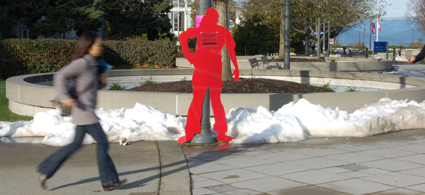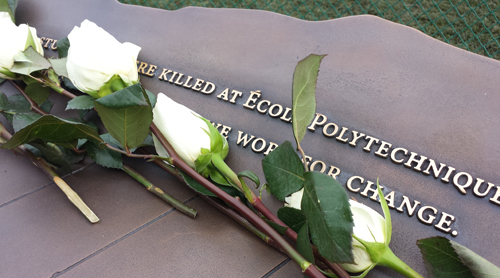
Post by Hannah Barath, Access & Diversity Co-op Student Assistant
On December 6, 1989, an armed man walked into an Engineering class at l’École Polytechnique de Montréal. After forcing the men to leave he said he hated feminists. He shot the women in the class, and then beyond it. At the end of his killing rampage, he shot himself. In total 28 people were injured, and all of the 14 people killed were women. Following these events, Canada established December 6 as the National Day of Remembrance and Action on Violence Against Women. The day marks the anniversary of the massacre and reminds us about acts of gender-based violence against women in Canada and around the world.
We honour the memory of these 14 women and all other women who have experienced gender-based violence every year through memorial services and sites. This year marks the 25th anniversary of the tragic event at l’École Polytechnique de Montréal. Perhaps it is especially noteworthy that this is the first year that the annual December 6th memorial service at UBC Vancouver will be held at a newly created memorial site in the Engineering Design Centre courtyard.
Considering the significance of this anniversary and the new memorial on our own campus, I have been reflecting on the purpose and importance of creating such memorials. In my opinion, the purpose of memorials are to create spaces for reflection, mourning, honoring, learning, and coming together as a community. With this in mind, I thought about how memorial sites, and in particular the one on our campus, can be places of remembrance but also places of action?
Gender-based violence is an ongoing issue, and the installment of this memorial site is one way that ongoing violence can be recognized and acknowledged each and every day. The physical location of the site also reflects that this tragic event is one that the Faculty of Applied Sciences identifies especially strongly with. Out of the 14 murdered, 12 were engineering students, the other two a nursing student and staff member of the school.
But gender-based violence is not an issue that is contained or relevant to only one Faculty or one gender. It is something that affects all people in one way or another. Regardless of the memorial’s location it is open and meant for all members of the UBC community.
The design allows this to be a place for reflecting and mourning, but it is also an open area that allows for social interaction and gathering, creating a place that lets us come together as a community and work for positive change. The 14 women who were killed are commemorated by a leaf-shaped table, which bears each of their names and the following inscription:
“On the 6th of December 1989, 14 women – 12 of them engineering students – were killed at l’École Polytechnique de Montréal because of their gender.
We mourn. We remember. We question. Together, we work for change”
I think that the last line is particularly important. December 6th is the National Day of Remembrance and Action on Violence Against Women. The line “together, we work for change” signifies that there are actions that have to be taken. The shooting at L’École Polytechnique is one example from Canadian history, but it is not an isolated event. Gender-based violence is something that is ongoing and a problem in our society. December 6 will mark 25 years since a lone man walked into a school and shot 14 women to death, because of their gender. But we must remember that gender-based violence manifests in many ways and it is something that is still very common.
So let this year be the first of many to come where this memorial site is a place not just of remembrance, but also one of action. I invite you to reflect on ways that you can work against gender-based violence in our society and to join one or more of the related December 6th events that are hosted on campus.
14 NOT FORGOTTEN MEMORIAL SERVICE
Tuesday, November 18, 2014, 12:30 p.m.
The Wayne and William White Engineering Design Centre courtyard
PANEL DISCUSSION: AN EXAMINATION OF DECEMBER 6TH: 25 YEARS LATER
Tuesday, November 25, 2014, 12-1 p.m.
Simon K. Y. Lee Global Lounge, Media Room, Building 1, 2205 Lower Mall
T-SHIRT SILKSCREENING WORKSHOP
Tuesday, November 25, 2014, 7-9 p.m.
Place Vanier Residence, Boardroom
CANDLE VIGIL
Friday, December 5, 2014, 10 a.m.-4 p.m.
SUB Main Concourse

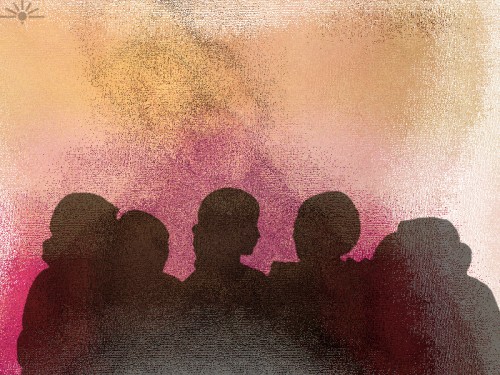
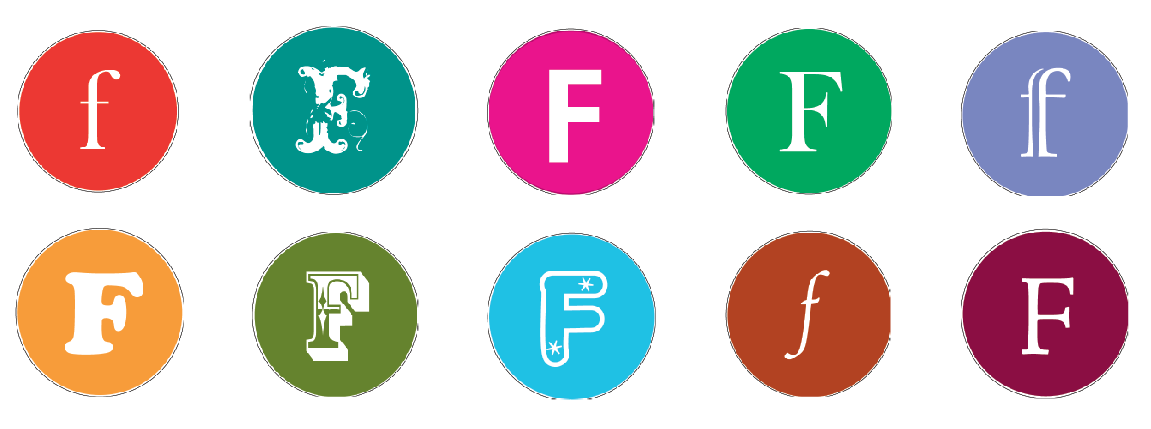
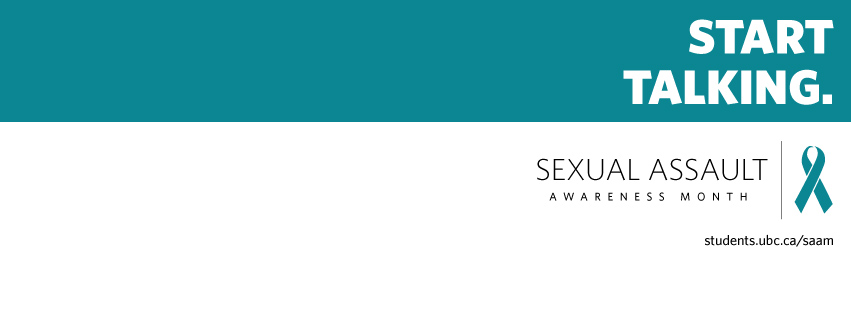 January is Sexual Assault Awareness Month at UBC.
January is Sexual Assault Awareness Month at UBC.
